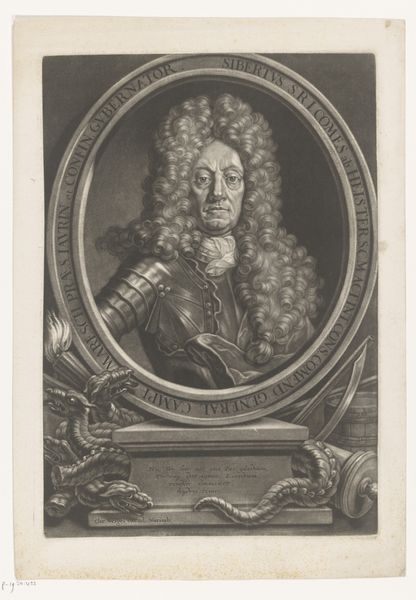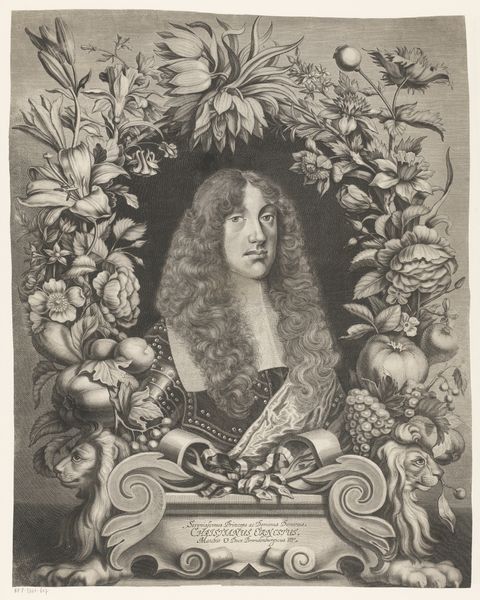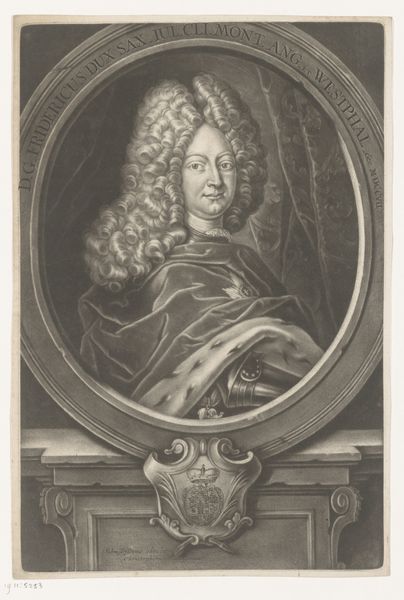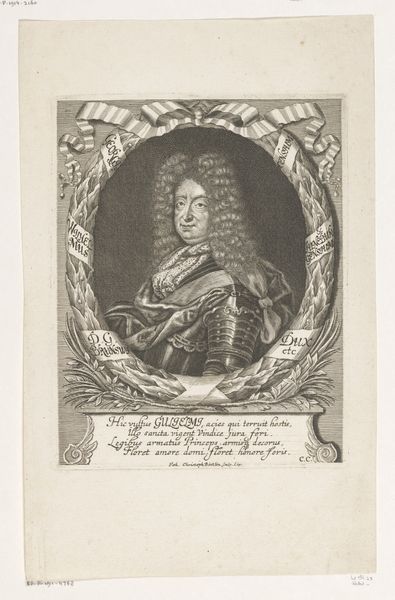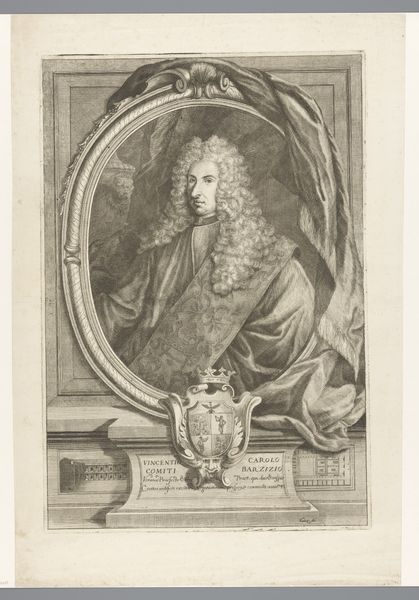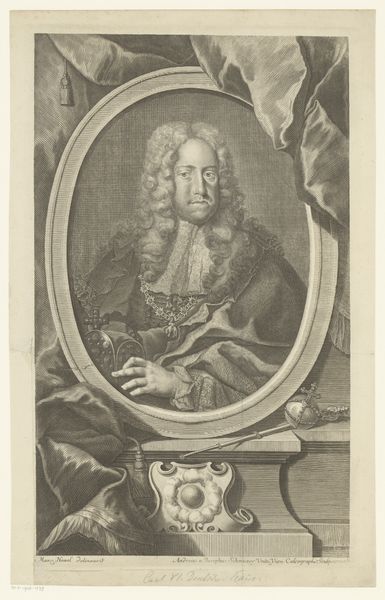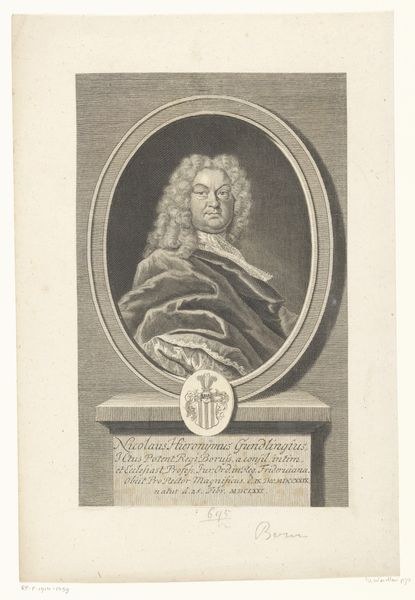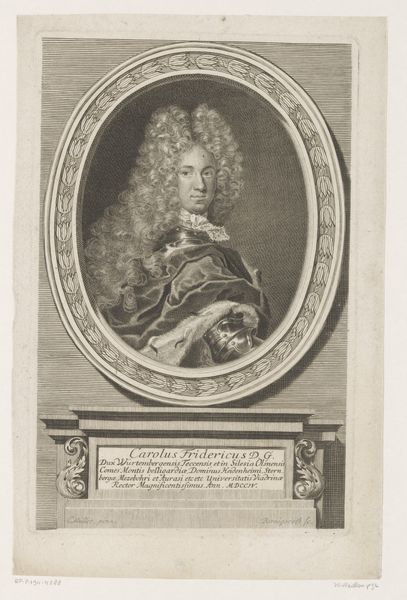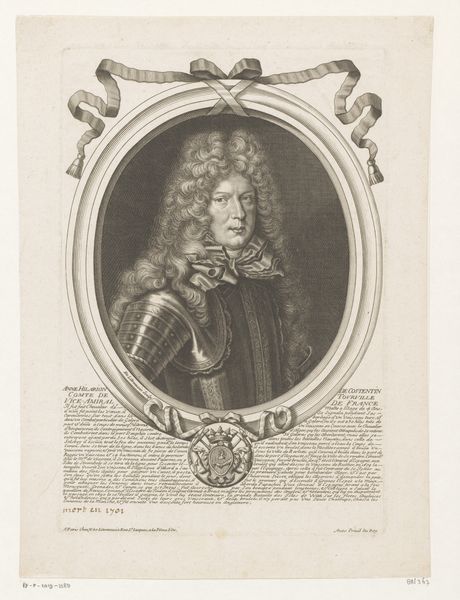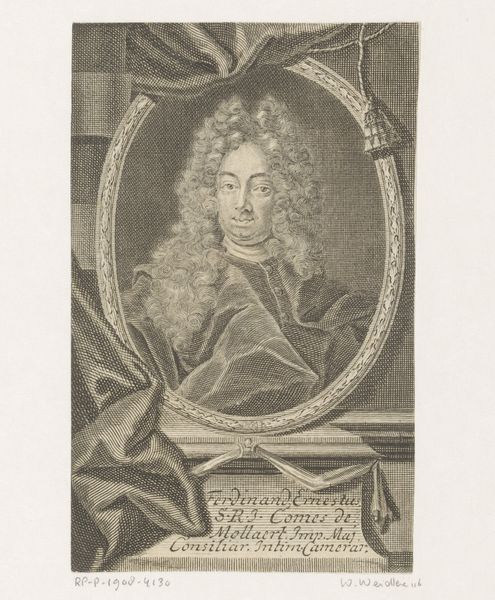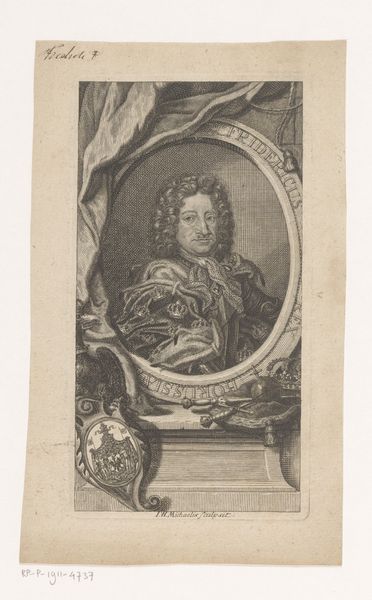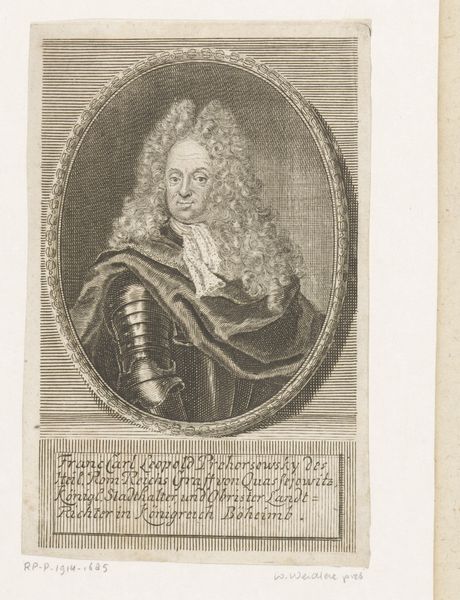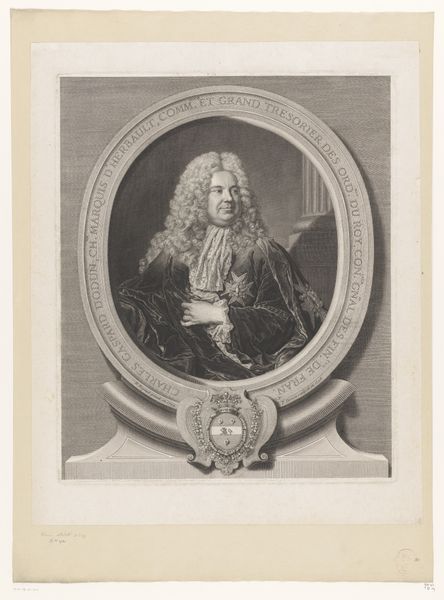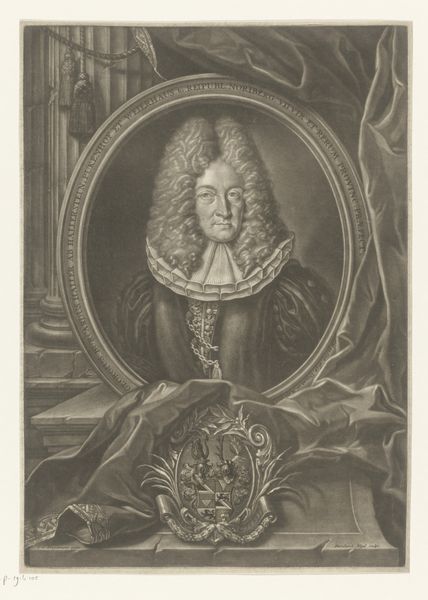
graphic-art, engraving
#
portrait
#
graphic-art
#
baroque
#
pen drawing
#
old engraving style
#
history-painting
#
engraving
Dimensions: height 278 mm, width 172 mm
Copyright: Rijks Museum: Open Domain
Curator: Instantly, I’m struck by the density of ornamentation—cherubs peeking out amidst leafy flourishes. The frame feels as significant as the subject. It’s Christian Romstet’s portrait of Sebastian Hildebrand von Metzsch. I feel like I need a magnifying glass just to explore it all. Editor: There’s a certain weight to this piece, wouldn't you say? A somberness held in check by all those putti. It's almost as if the baroque grandeur is both celebrating and masking a deep melancholy. Is this typical Romstet? Curator: The high baroque loved layering, and this print certainly revels in that aesthetic. Think about it. The work presents a fascinating tension between graphic art and portraiture. Created somewhere between 1665 and 1721, the pen drawing and engraving aims to show us not just what von Metzsch looked like, but to remind us *who* he was, including title and heraldic symbols in its visual language. Editor: Ah, those symbols! The heraldry is interesting, like a visual biography hinting at family lineage and status. But tell me more about von Metzsch. Does he cut a tragic figure, in your view? The eyes especially have such weariness and heaviness. Curator: He did have a lot of positions of power and prestige, so in some way he seems very imposing. What secrets did this man hold behind those eyes, right? Did all the titles bring him joy or something else entirely? The overall feeling is… I feel that there is more being expressed than only external appearance, so, I'm moved. Editor: Yes, a powerful individual caught in the machinery of court and privilege. And in that elaborate frame, that's exactly what is expressed: caught and displayed. It’s a potent commentary on the constraints of power, wouldn’t you say? Curator: A gorgeous piece. I’m left with the question of who controls whom: did von Metzsch possess the trappings of power, or did they, in the end, define and confine him? Editor: Perhaps the portrait itself, this captured image, is the final and most enduring confine. Food for thought as we leave.
Comments
No comments
Be the first to comment and join the conversation on the ultimate creative platform.
